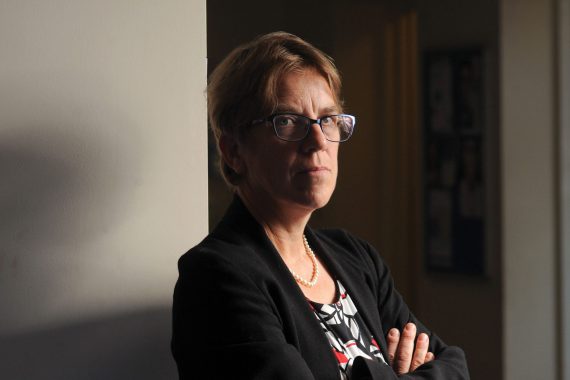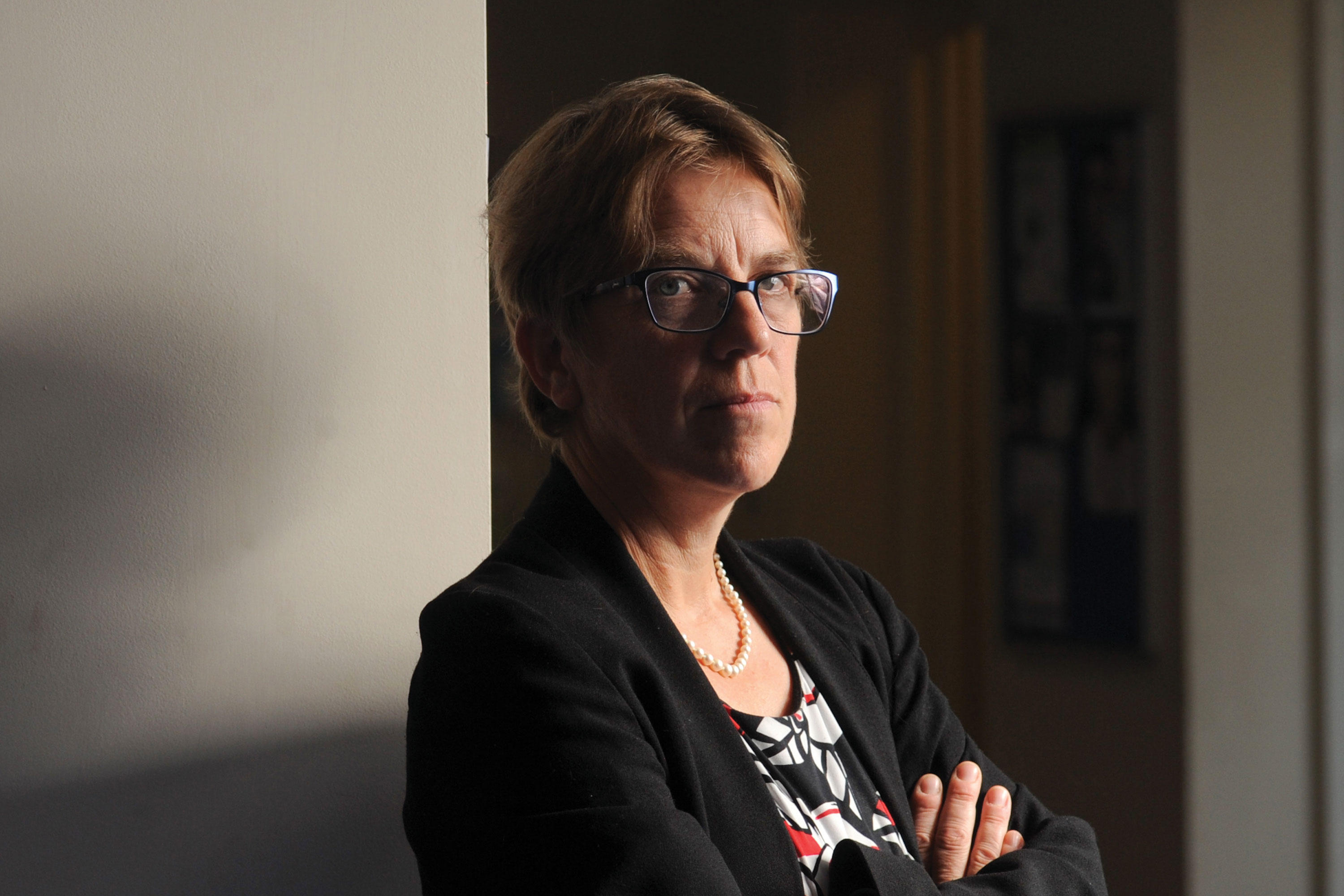Where is the help promised for vulnerable practices?


Money – coins – cash – online
Health secretary Jeremy Hunt’s ‘new deal’ for general practice last year turned out to be the most sodden of squibs.
But buried among the stale and rebadged ideas was one initiative GPs did welcome: a £10m fund dedicated to supporting struggling practices.
NHS England promised the ‘vulnerable practices’ fund would ‘provide support to practices under pressure, ensuring patients have continued access to high-quality care’.
However, a year and a half later, Pulse can reveal the funds have yet to reach the front line, while problems have worsened for many of the 800-plus practices said to be in critical need of support.
Pulse has contacted dozens of LMCs, every local area team in England and vulnerable practices themselves. A picture has emerged of an overly complex scheme, with no timeline or central direction on allocation of funds. Not a single area team has been able to tell Pulse how much funding it has given to vulnerable practices.
NHS England has set a deadline of 31 October for area teams to agree support for practices, but there is no guarantee of when practices will start to benefit.
In the meantime, some practices face closure after being left waiting for months for the promised support, while area teams dither. Even when they have committed to funding, there are often significant strings attached.
When the initial £10m fund was announced last year, it was welcomed by GP leaders, and signalled a success for Pulse’s Stop Practice Closures campaign, launched in 2014, which sought to highlight the pressures faced by practices on the brink.
The NHS England central office gave area teams leeway to decide how to spend the money. It advised that the money could be spent on support teams to be parachuted into practices to lead mergers or overhaul structures, such as introducing new workforce skill mix. Alternatively, it could fund legal support for mergers with other local practices, or help to expand practice premises.
There were even opportunities to give funding directly to practices in dire need – the kind of funding practices were crying out for.
Confusion
NHS England told its area teams how to identify vulnerable practices in December 2015, based largely on their CQC rating, but also with flexibility to use CCGs’ ‘local intelligence’. This identified 800 potentially vulnerable practices across England.
Yet 10 months later, many area teams haven’t even identified which practices they will support.
An NHS England spokesperson says: ‘NHS England is working through its local teams to ensure the funding available through the vulnerable practice fund is fully committed to named individual practices by the end of October.’ But there are no guarantees about when practices will see the cash in their bank accounts.
- The Central Midlands area team says it is ‘looking to ensure’ all funding is allocated by the end of this month, adding there have been ‘some practices that have received funding directly under this programme’.
- The North Midlands area team claims funding has been ‘fully allocated’, allowing practices to ‘benefit from expert advice which will help them to develop robust, long term plans’. However, it is unable to say how many practices have benefited.
- The West Midlands area team says it is ‘working with all its CCGs to identify practices that need support the most’.
- The South region area team also says it is still working to identify the practices it will support.
The reason for the delay, believes Dr Brian Balmer – a GPC negotiator until last month – is that area teams have been unsure about how to implement the scheme: ‘They know that this was too complex, too cumbersome.’
While area teams were afforded flexibility, there were some top-down diktats, such as the stipulation – now dropped – that practices stump up funding equal to the funding support they were being given.
‘NHS England has completely forgotten how to give the money to the right people and get on with it,’ Dr Balmer says.
Inevitably the real losers amid the delays and confusion have inevitably been the vulnerable GP practices themselves, with local leaders warning that those in trouble are missing out on desperately needed help:
- In London, practices that have been identified by NHS England and CCGs have not yet been contacted.
- Leicester, Leicestershire and Rutland LMC says £8,000 for practices to ‘buy in expertise’, and £2,000 for ‘diagnostic’ support, are available but only two practices have so far received any funding.
- Kent LMC says a substantial number of practices has been identified, but knows of none that has actually had funding. Some have been receiving support from an RCGP scheme to help practices in CQC special measures.
Walsall LMC secretary Dr Uzma Ahmad tells Pulse that five of the town’s practices were identified as vulnerable and promised up to £15,000 in support. Typically, though, there was a sting in the tail: ‘Practices have to give £1,450 beforehand from their own pocket, and get it reimbursed at some point by NHS England.’
And she says one of the most vulnerable practices, which was going through the CQC’s ‘special measures’ programme, was informed at the start of June that it could benefit from the vulnerable practice fund – but ‘nothing has materialised yet’.
In neighbouring Wolverhampton, Dr Ahmad says, the Raynor Road Medical Centre was closed down by the CQC while it was waiting for support to be provided.
Meanwhile, in Doncaster, Dr Arif Shahzad says practice had been identified as ‘vulnerable’. The area team was supportive at first, asking how the practice felt the money should be spent.
However, the team then insisted the practice contribute funding in kind, and became ‘prescriptive’.
Dr Shahzad says: ‘All of a sudden they said “we think you should use the money on an independent financial review”. I was shocked by that – I thought if they wanted to do an independent financial review, why should we pay for it?
‘Now, we are not sure if we are getting funding for the things we need help on. However, we remain in talks with NHS England.’
Ben Osborne, practice manager at the West One Surgery in Somerset, agrees that the strings attached are too onerous: ‘We haven’t received any funding because we had to do an action plan to get access to it and we didn’t have the capacity to write one.’
Lancashire and Cumbria LMCs chief executive Peter Higgins says the area teams in both Lancashire and Cumbria had ‘good intentions’ for the scheme. But, showing the variability, ‘none of the 35 practices in Lancashire have got any money yet’, while all practices that were eligible for funding in Cumbria were given £14,000 directly.
Dr Balmer believes NHS England is aware of the problems and intends to set things right for the next tranche of funding – a new £40m resilience fund announced in the GP Forward View.
He adds: ‘I do know NHS England were disappointed in the uptake and the amount of spend. They’ve completely forgotten that nimble, local action is what gets stuff done in the health service.’
Under the new programme, starting this year, area teams have been asked to identify practices at imminent risk of closure by 14 October, and provide evidence of investment being fully committed to named practices by 30 December. Monthly monitoring has been established to ensure all money from the old and new funds reach practices.
Dr Balmer says there is a sense that lessons have been learned: ‘They want the new resilience programme to be much more light touch, with much more local flexibility.’
But the reality is that, for some struggling practices, it may be too late.
GPC advice: Can my practice access the vulnerable practice fund?
1 Ask your local area team/CCG if you were identified as ‘vulnerable’. The regional office has been told to offer support by 31 October, so you may still have time to make a case.
2 Check with your area team/CCG if any funding is still available and about the criteria for accessing it. Most teams haven’t yet allocated all their funding.
3 LMCs should be involved by CCGs in this process so it’s worth seeking their help with your application.
4 Find out if you qualify for support from the £40m ‘resilience fund’ announced in the General Practice Forward View (separate to last year’s £10m vulnerable practice pot.) NHS England has said £16m will be allocated in 2016/17.
Dr Robert Morley is chair of the GPC contracts and regulation subcommittee and executive secretary of Birmingham LMC
‘It’s as much use as a chocolate teapot’

dr wendy harrison 3×2
We have been ‘identified’ as vulnerable as have two other local practices.
But the help offered is an external company coming in to do an ‘in-depth CQC-type inspection’ to identify areas where we could improve. The company charges £9,000 per practice – which we have to match in ‘resource time’.
The practices were not impressed by this offer. We’ve all had a recent CQC inspection – ours just a few months ago – and we were found to be ‘good’.
Another inspection would be time consuming and stressful and would appear to be a total waste of money.
We know exactly why we are vulnerable. We’re in a deprived area with high disease prevalence and a very elderly population. We are far from main hospitals and cities and so have recruitment and retention issues.
Like the other two practices, our situation has been made very much worse by the loss of our PMS premium – in our case a massive £144,000.
I don’t know if practices in other areas have been offered similar ‘help’ but in our case it’s as much use as a chocolate teapot.
Dr Wendy Harrison is a GP in Cambridgeshire
Where to go for help in the devolved nations
In Wales some practices are getting help from additional doctors employed by health boards to plug staffing gaps. And the Aneurin Bevan Health Board in south Wales has put together a merger package to help with costs faced by practices. However, support varies across the country.
NHS boards in Scotland offer direct support to practices, the Government told Pulse. They are also looking at new models of care, expanding primary care teams and local enhanced services so other practices can support surgeries in difficulty.
In Northern Ireland support is on an ‘individual ad hoc’ basis. Regional health boards will fund locums, Western LMC secretary Dr Martin McCloskey said. Practices are also being encouraged to amalgamate.
Pulse October survey
Take our July 2025 survey to potentially win £1.000 worth of tokens











